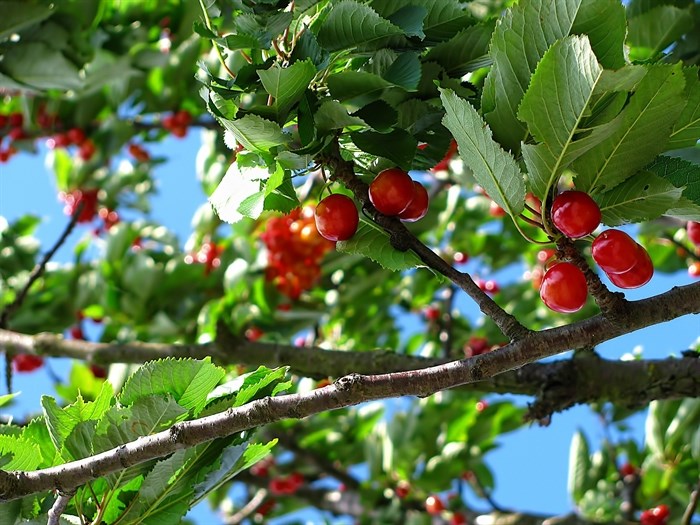
Image Credit: PEXELS
July 08, 2021 - 6:00 AM
B.C.’s tree fruit farmers were dealt a devastating blow last week when temperatures reached record highs.
“We'll have more definitive information later but it’s probably a 50 to 70% loss for cherries overall and for some individual orchards, it was a 100% loss,” Glen Lucas with the BC Fruit Growers Association said.
What Lucas said makes the difference from one farm to the next was how far the plant is in its development. That meant early-season cherries were the most severely impacted.
“A lot of the cherries were sunburned, or just damaged by the heat. In fact, I've seen trees where the actual leaves died. It was very extreme. We haven't seen that before,” he said.
Later ripening cherries are doing better, with the damage reported to be less intense, though the jury is still out on how much better they will fare.
“We'll see how the rest of the season unfolds here,” Lucas said. “We’re essentially at the very start of the late-season cherry harvest, and it usually goes right through to the end of August but it's probably a couple of weeks earlier here because the season is more been hotter and more advanced.”
Apples are also in troublesome new territory.
“What happens with apples is, there's usually a spot where, on the apple where it gets sunburned and it looks like a baked apple that you put in the oven,” he said. “That, that of course makes apple unmarketable because it starts to rot, so the farmer can't sell it and can’t store it.”
Luckily, he said, the apple tree actually sheds those fruits that are damaged in that way and, if the farmer is lucky, the rest of the apples are good.
There are other types of sunburn, to apples that aren't as severe but still affected the apple and those ones don't drop off the tree so that's a bit more of a problem to handle them,” he said. “So I would call it a management headache for the grower. And to a large extent, the packers who sort out the good fruit from the fruit that's been damaged.”
All said and done, Lucas said it’s going to be a challenging year no matter what. Between COVID-19, labour shortages, and other ongoing issues farming in the valley has been challenging.
Lucas doesn’t however, feel concerned that ongoing climate changes will be the death knell to the industry.
“This was, I’ve heard it called, a once every 1,000 years event and if it becomes an every year event or every other year event that's a very significant change for anyone in the industry, or for anyone living,” he said. “Having said that, I think we know as an industry need to be prepared that these events happen and so we need to look at how do we protect our industry and our economy.”
To date, he said, growers remain resilient despite a number of other financial challenges in recent years.
“We’ve got great advantages in the Okanagan under normal circumstances,” he said. “Even with a little bit of climate change, we still have those advantages. I don't think there's any indication that this (recent heat wave) is the new normal, it's our new extreme level.”
So, realizing this as an extreme that will likely be seen in the future the industry can move forward, he said and maybe even thrive.
“I think we're fairly ideal tree fruit production areas. It would be more challenging for the further south you go,” he said.
“You look at California where they don't have that water supply, where they're running short of the water and where they might expect the more extreme heat more frequently. So relatively I'd say we have a role to play in terms of tree fruit production.”
Further north up to Armstrong, Enderby, Kamloops he said there’s new farm life emerging.
“It’s funny because there used to be a lot of apple orchards up in Kamloops and they largely disappeared but we're seeing that reemerge now with this climate change pattern changing,” he said.
To contact a reporter for this story, email Kathy Michaels or call 250-718-0428 or email the editor. You can also submit photos, videos or news tips to the newsroom and be entered to win a monthly prize draw.
We welcome your comments and opinions on our stories but play nice. We won't censor or delete comments unless they contain off-topic statements or links, unnecessary vulgarity, false facts, spam or obviously fake profiles. If you have any concerns about what you see in comments, email the editor in the link above.
News from © iNFOnews, 2021